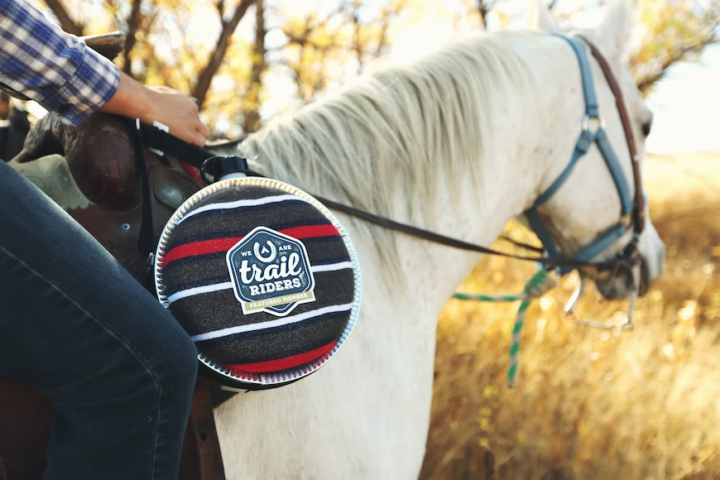Amateur Horse Riders, Take Note: This Is What Your Companion Needs
If you’re an amateur horse rider, you know that having the right companion is essential to success. But what does your companion need to help you ride better? It can quickly get confusing, especially if you’re new to the sport. But it doesn’t have to be complicated. Here are a few tips to help you:

Be Gentle with the Reins
Your horse is your partner in this activity, and you must treat them respectfully. Pulling too hard on the reins can cause your horse to panic and make it difficult for you to control the animal. Instead, be gentle with the reins and give your horse enough slack to move its head comfortably.
It’s also crucial to avoid yanking on the reins, as this can startle your horse and make them hesitant to move forward. If you need to stop suddenly, try using light pressure on the reins instead of pulling them back hard. With a bit of practice, you’ll be able to control your horse with ease.
Invest in High-Quality Equipment
Investing in high-quality equipment is important for the overall well-being of your horse. Saddle pads, along with bridles, reins, and girths, play an important role in ensuring comfort and safety during rides.
Saddle pads help distribute the rider’s weight evenly, preventing pressure points and discomfort for the horse. You can find sets of saddle pads in a variety of colors and styles that are durable and not only meet your horse’s needs but also complement your personal preferences and sense of style.
Quality bridles and reins provide clear communication between rider and horse, promoting better control and responsiveness. Well-made girths help secure the saddle in place, preventing discomfort during movement.
Think of Joint Supplements
You need to focus on musculoskeletal health if you want your horse to be healthy and happy. These supplements can help horses of all ages by reducing inflammation and joint pain. They can also improve flexibility and increase mobility.
Joint supplements are essential for older horses dealing with arthritis or other age-related joint issues. But even young, healthy horses can benefit from these supplements. If you’re unsure which supplement is right for your horse, talk to your veterinarian for advice.
When buying these products, make sure to read the label carefully. Some supplements contain harmful ingredients to horses, so choosing a product specifically designed for equine use is crucial. When buying online, go through the pages and see the options you have from the dealer.
You can click here and see the specifics regarding the different supplements. Concentrate on the ingredients and ensure they suit your horse before settling on one. The quality needs to be at the top to give your companion the best results.
Be Patient
Horses are creatures of habit, and they can sometimes be resistant to change. If you’re trying to teach your horse a new trick or get them to go in a different direction, it’s essential to be patient. Remember that horses learn best through repetition, so if you keep at it, eventually, your horse will catch on.
There’s a limit to how much patience you can have – if you’ve been working on the same thing for hours with no progress, it might be time to try something new. But generally, it’s best to give your horse time to adjust to new situations.
Give Your Horse a Break
Horses need time to rest and recover, just like humans do. If you’re working your horse hard, give them plenty of breaks between sessions. Horses should also be allowed to graze and roam freely in your area with your newly installed horse fencing, which helps keep them healthy and relaxed.
In addition, it’s essential to have regular vet checkups for your horse. This will help you catch any health problems early on before they have a chance to become serious. By taking care of your horse, you’ll be able to ride better and enjoy the sport for years to come.
Provide a Balanced Diet
A healthy diet is essential for all creatures, including horses. Ensure your horse gets enough hay, grain, and water daily. You should also offer your horse some variety in their diet, which will help keep the animal from getting bored.
Talk to your veterinarian if you’re unsure what food is best for your horse. They can give you specific recommendations based on your horse’s age, weight, and health. In general, it’s best to avoid processed foods and sugary treats. These can cause weight gain and other health problems in horses.
Pay Attention to Your Horse’s Body Language
Horses communicate through their bodies; if you know what to look for, you can usually tell what they’re trying to say. For example, a horse pawing at the ground or swishing its tail is likely to be frustrated or impatient. A horse yawning or licking its lips might feel nervous or tense.
You can better understand your horse’s needs and moods by paying attention to these cues. In addition, it’s essential to pay attention to your body language when around horses. Horses are susceptible to nonverbal cues, so if you’re tense or nervous, they will likely pick up on that. Instead, try to remain calm and relaxed around horses, and they will likely respond in kind.
Riding a horse can be a fun and rewarding experience. But it’s important to remember that horses are living creatures and must be treated with care and respect. By following these tips, you can make sure your horse is healthy and happy, and you can enjoy the sport for years to come.


